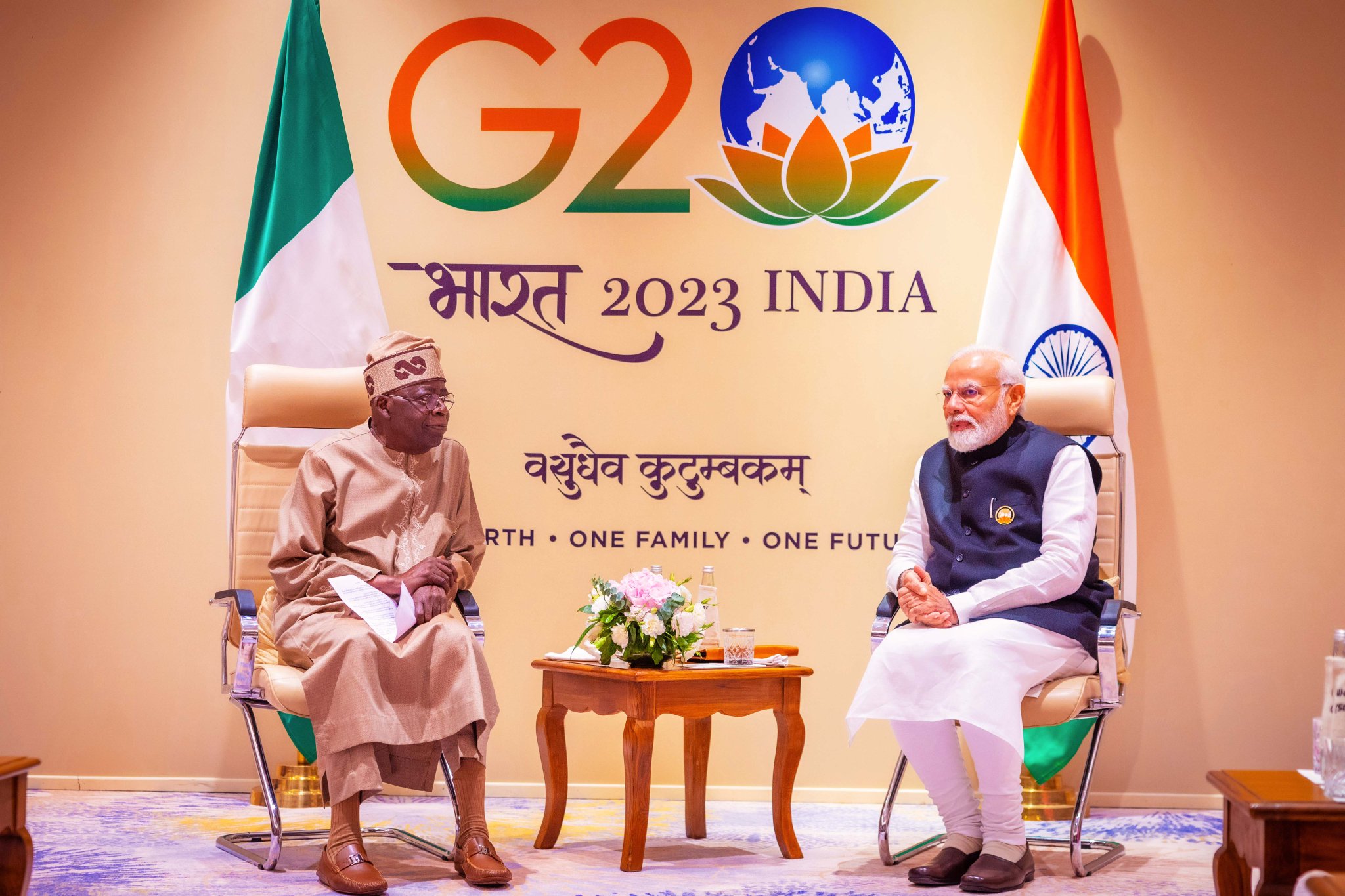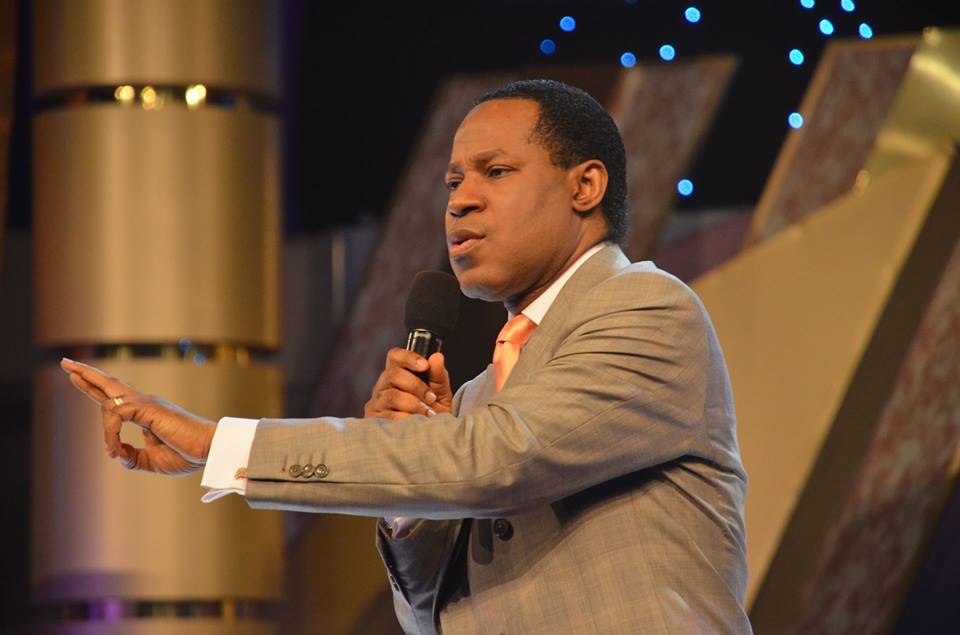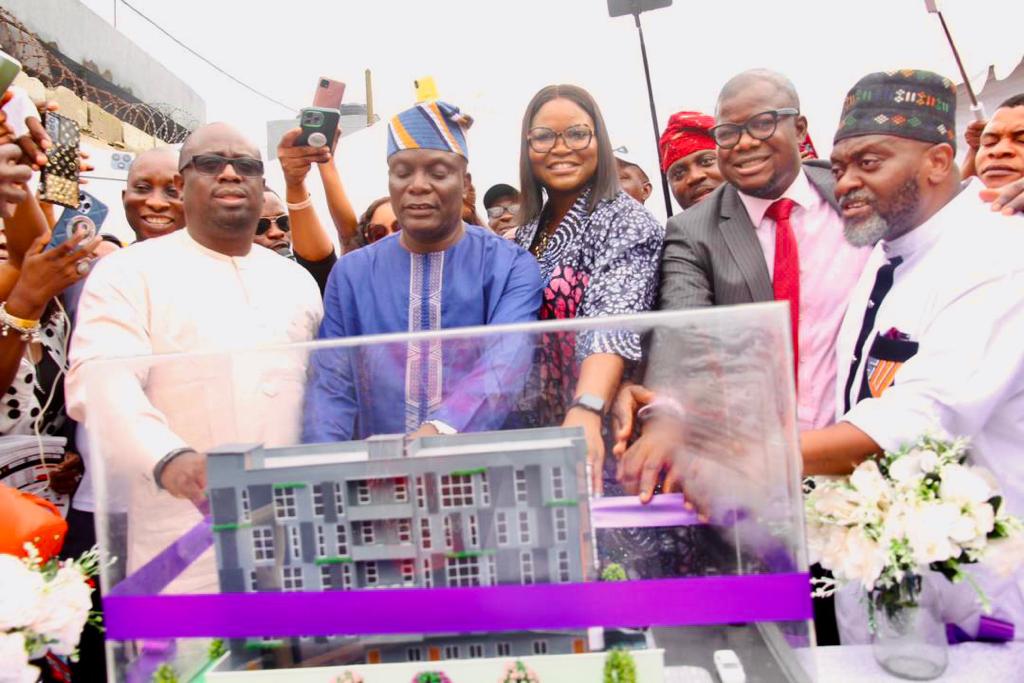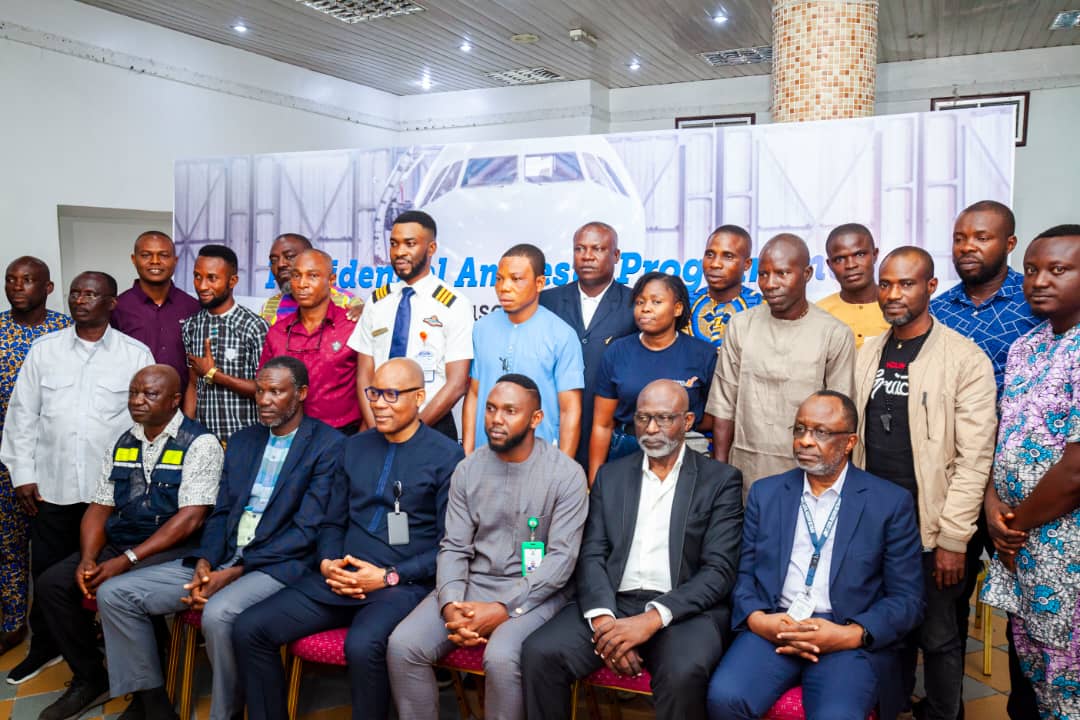By Keem Abdul
For Nigerian President Bola Ahmed Tinubu, the 2023 edition of the Group of 20 (or G20) Heads of State and Government Summit held on the 9th and 10th of September, 2023 in New Delhi, the India, was the perfect platform to introduce himself to the global community, and to give his counterparts from across the globe a chance to take a good look at, and size up, the new kid on the (international) block.
Far from being just a forum for geopolitical discourse, however, the G20 Summit – which brings together leaders of the world’s 20 largest economies, along with intergovernmental groups such as the European Union and the African Union – is also an economic forum where the worlds of geo-politics and business intersect; where executive power engages with high finance; where the movement meets the market, and where tycoons, moguls and investors try to gain leverage with the men (and increasingly these days, the women) of power and influence.
Although Nigeria is not a member of the G20 (except as a leading member of the newly-inducted African Union), the special invitation extended to President Tinubu by Indian Prime Minister Narendra Modi (in his capacity as chairman of the G20), was instructive. First, it underscored Modi’s quest to position his country as a major driver of economic cooperation among the countries of the so-called ‘global South‘ in their bid to attain greater and more sustainable development, and a greater say in the conversation about issues of global interest. That quest, as far as engaging with the emerging markets of Africa is concerned, is incomplete without Nigeria, the continent’s largest economy (without prejudice to South Africa, which happens to be the ONLY African member-nation in the G20). Secondly, as the 6th largest economy in the world, India is looking to expand its economic circle of influence by securing favorable terms of engagement for its business class as they explore investment opportunities in various economies around the world.
Advertisement
In light of the above, Tinubu’s mission in New Delhi was a timely and fortuitous one indeed, as it responded to a convergence of interests – Nigeria’s and India’s – on a whole number of levels. Perhaps this convergence explains the successes recorded by the President and his team in their interactions with various parties in the Indian capital, from government officials to leading corporate players before, during and after the G20 Summit. At the last count, these interactions have yielded a prospective investment portfolio of about $15 billion.
Shortly before the official commencement of the Summit, President Tinubu met with the Indian tycoon, Mr. Gopichand Hinduja, Chairman and CEO of the Hinduja Group of Companies, a conglomerate with a total asset portfolio of over $100 billion. The President was reported to have told Hinduja, “We are here to assure our friends and investors that there is no bottleneck we will not break. Nigeria will become one of the most conducive places on earth to make good profit and create lasting jobs.” Henceforth, the President added, there is nothing standing in the way of investors desirous of maximizing the unrivalled opportunities presented by Nigeria’s massive market and the ingenuity and industry of its people.
On his part, Hinduja recalled the strides Tinubu, as Governor of Lagos State, recorded in turning a coastal erosion and water encroachment crisis into a massive free trade zone where industry now thrives. This, he said, was just one of many reasons for his eagerness to partner with the administration to create what he called ‘a win-win prosperity‘ for Nigeria’s talented population. “We are going to make investments into the billions of dollars”, the Industrialist announced, “because we see you are already addressing the systemic problems of Nigeria. We will get to work immediately, particularly with respect to bus and automobile manufacturing in Nigeria, amongst other areas.”
Advertisement
Those positive sentiments were echoed in every room in which the President sat down to engage with corporate India. For example, the Indorama Corporation, producer of petrochemical products with an already substantial investment footprint in Nigeria (in the shape of the Indorama Eleme Petrochemicals Limited in Port Harcourt, Rivers State), made a pledge of $8bn worth of investments to expand its petrochemical facilities in that state. The steel giants, Jindal Steel, pledged $3bn worth of investments in iron are processing to aid Nigeria’s industrialization drive. A consortium of companies pledged $1bn worth of investments to aid the Defense lndustries Corporation of Nigeria (DICON) in modernizing its operations and gaining self-sufficiency by 2027. On its part, Skippersells plans to invest $1.6bn in the power sector by building 2000mw power plants across the country in 4 years; while Bhakti Enterprises has pledged $700m worth of investmentt to create jobs in emerging sectors such as telecommunications, space communications, real estate, insurance and hospitality.
To be sure, these investment plans and pledges, as remarkable as they are, represent a mere drop in the ocean as far as Nigeria’s investment needs are concerned (at least $100bn on a consistent basis for the next 30 years). But they are a giant step forward, as they have engendered hope that what began as a trickle today can become a flood tomorrow.
However, to induce this flood of investment funds into the Nigerian economy, Nigeria’s policymakers – at national and subnational levels – must muster the political will and summon the expertise to tackle the many bottlenecks militating against our progress in this regard. Chief among them is corruption, followed by insecurity. Other bottlenecks include systemic inefficiency, multiple taxation and other inhibiting (one might even say, retrogressive) regulatory frameworks. As a stakeholder once lamented, Nigerian policy-makers, for the most part, see investors as rivals rather than as partners – and therefore expend an inordinate amount energy in trying to stand in their way, whereas their statutory role should be as enablers and facilitors.
A change of attitude on the part of stskeholders on the Nigerian end of things, therefore, will go a long way in ensuring that the President’s exertions abroad – convincing prospective investors about the basic strengths of the Nigerian economy and the robustness of its market – yield the desired fruit, not just in terms of our recovery from the present economic slump but in also in erecting the building-blocks of future prosperity – a prosperity which is includive and lasting.
Advertisement
Asiwaju Bola Tinubu’s reputation as a leader who runs entities like a CEO (discarding what doesn’t work, and running full tilt with what does, setting timelines for resolution of issues, and assigning responsibilities accordingly, etc.) is sure to resonate in due course with members of the international community who deal with Nigeria, and this will definitely come as a pleasant surprise, not to mention relief, to Nigeria’s partners abroad, many of who, for the last eight years, had to deal with a President who was content to let important matters (especially those in the low-hanging-fruit category) lie, without nipping them in the bud, in the hope that they will go away of their own accord, only for those matters to later fester into real crises demanding urgent – indeed desperate – action.
One of the highlights of his forays abroad in the past few weeks, and one in which his ability to cut to the chase, however contentious the matter, was his trip to Abu Dhabi, capital of the United Arab Emirates, where he met his UAE counterpart, Mohamed bin Zayed Al Nahayan. In the course of the meeting, the two leaders finalized an agreement which resulted in the immediate cessation of the visa ban placed on Nigerian travelers to the UAE. By this agreement, the two UAE carriers, Etihad Airlines and Emirates Airlines, will immediately resume flight schedules into and out of Nigeria. The agreement is part of an agreed framework of cooperation between the two countries, which will also entail several billions of U.S. dollars worth of new investments into the Nigerian economy across multiple sectors, most notably in defense and agriculture.
The President’s UAE trip and its remarkable outcome, buttresses the point earlier made in this piece – about the attitude of the average Nigerian (including members of her elite class) towards those progressive tendencies which have propelled other nations, many of them far less endowed than Nigeria in terms of natural and human resources, to the heights of global economic prominence. Surely, President Tinubu’s success in securing a revocation of the UAE visa ban is worthy of celebration. But it also calls for a bout of soul-searching on all our parts, as to why we go to Dubai (the UAE’s economic and tourism hub) in the first place. From an economic point of view, we gain nothing from trooping to Dubai to gaze at skyscrapers and pose for pictures beside colourful water fountains and aquariums. Such an exhibition of other people’s ingenuity, at the expense of our national pride, is a symptom of a psychological ailment, a sign that, in the words of the renowned Nigerian writer, Chimamanda Adichie, “something has died in us.” The sight of such man-made wonders, created out of endowments that we have in abundance within our borders, and our utter failure – or sheer refusal – to put them to equally good use, should fill our leaders with shame (unless their consciences have died in them). The UAE’s astounding progress should depress anyone in the Nigerian power elite who can recall the socioeconomic status of that country a few short years ago. Not long ago, the UAE was simply a wretched patch of desert on the southern fringes of the Arabian Peninsula.
The advent of oil wealth – the same oil wealth Nigeria made an art out of frittering away in the trillions of dollars over the course of five aimless decades – transformed the profile and fortunes of that little sheikhdom in no small way. But oil alone does not explain the UAE’s progress. Their leaders seem to possess that combination of ‘X-Factors’ our own leaders seem to lack sorely – Vision. Patriotism. Capacity. The wonders of Dubai – and the pleasure our people derive in visiting and posing for pictures beside iconic landmarks like the Burj al Arab hotel and the Burg al Khalifa tower, stand as a bitter indictment on our political class, who have shamelessly left our own endowments (as represented by the likes of Obudu Ranch Resort, the Yankari Games Reserve, the Oguta Lake, Idanre Hills, Ikogosi Warm Springs, etc.) to rot. Clearly, the ‘X-Factor’ is missing in our leadership.
Advertisement
In his address to the Summit in New Delhi, President Tinubu signposted this attitude change on the part of his government as he expressed Nigeria’s commitment to play a major role within the G20 and contribute to shaping a more equitable world. Reflecting on the theme of the Summit: ‘One Earth. One Family. One Future,’ he stressed the interconnectedness of global affairs and the need for collaborative efforts. He committed his administration to the task of ensuring progress in the areas of physical development, vocational as well as entrepreneural education; gainful and fulfilling employment (especially for our young people); security; environmental preservation and climate sustainability; viable energy transitions; food security and agricultural self-sufficiency; affordable, accessible and humane healthcare; fair trade and investment; as well as tourism – in line with the goals of the G20 in particular, and the UN’s Sustainable Development Goals (SDGs) in general.
From his interactions abroad in the last few weeks, President Tinubu has reminded Nigeria’s partners, and the investors he has courted so skillfully, that the ‘X-Factor’ still exists as a component of leadership in these parts. Let us hope that those investors and partners will find more of that combination of ‘X-Factors’ when they arrive with their investment dollars and engage more robustly with other members of the political class, policymakers and other stakeholders in the Nigerian system.
Advertisement
Abdul, a PR consultant, publisher and writer, hails from Lagos. He can be reached via +2348038795377 or [email protected]
Advertisement
Add a comment




